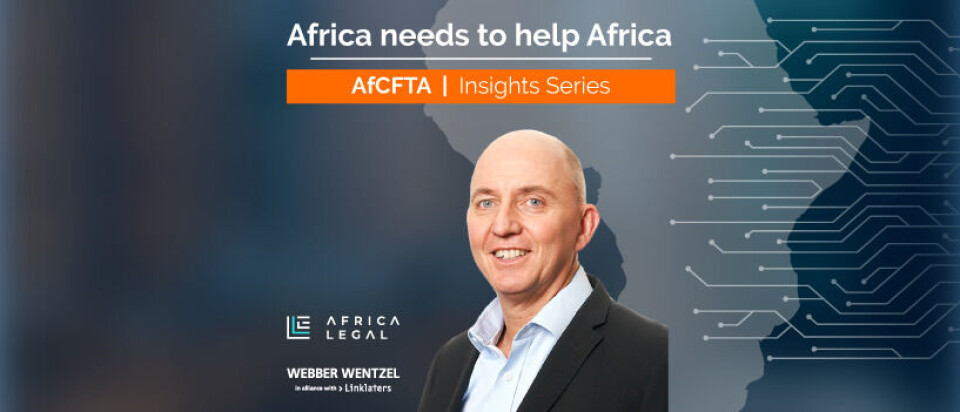Copyright : Re-publication of this article is authorised only in the following circumstances; the writer and Africa Legal are both recognised as the author and the website address www.africa-legal.com and original article link are back linked. Re-publication without both must be preauthorised by contacting editor@africa-legal.com
Africa needs to help Africa

The African Continental Free Trade Agreement (AfCFTA) has the potential to drive economic development and radically improve the welfare and lives of millions of people across the continent. Yet there remains much more to be done from a legal and regulatory perspective to ensure the deal has maximum impact, according to Daryl Dingley, a partner at Webber Wentzel.
The biggest challenge the agreement faces is around the free movement of labour—something that won’t happen without the rationalisation of existing laws, Dingley says. One way to help ease concerns about large numbers of people freely moving across borders is to initially introduce professional visas for certain businesses. That would limit mass-movement, but it would still need governments to lift visa restrictions or reform immigration policies more generally.
“This is the most difficult aspect, but at the moment you see more of a focus on trade and not so much on labour, but the two are intertwined and in order for this to take flight we need to look at the movement of people very carefully,” he says.
That means identifying priority sectors where improvements are needed and where skilled labour from other member states could help build those sectors up.
Boosting intra-African trade will also mean introducing zero tariffs on goods, which is likely to happen at uneven pace across the continent as individual governments seek to protect certain domestic sectors.
“Africa needs to help Africa,” says Dingley. “If we zero the tariffs among ourselves, we can start trading more and uplift countries that are closest to each other. The end result must be that we rely less on imported machines and products from overseas and we start producing these items ourselves and start diversifying as countries within the trading bloc to improve employment opportunities.
Other areas that need to be addressed include the introduction of competition laws to boost competitiveness and the dismantling of policies that constrain market development.
“Many countries in the free trade area have restrictive policies around certain sectors like communications and postal services where they have only allowed one player, so there needs to be a lot of opening up of sectors and a removal of these restrictive policies,” says Dingley.
Another area that needs more focus are non-tariff barriers, such as transit fees and import payments. Exchange control rules and capital flow restrictions in certain countries mean it is challenging for companies to repatriate profits, further hindering cross-border trade. Some countries also have restrictions on foreign ownership and rules on foreign direct investment, all of which needs to be rationalised, says Dingley.
“You need to overcome those if you want to increase the manufacturing base and encourage people to invest,” he says.
That investment is critical for financing the infrastructure and transport corridors needed to support intra-African trade growth.
“One of the things that needs to happen is ministers and various trade representatives in countries need to sit down and agree on priority sectors and their investment plans within their own countries,” says Dingley. “They need to focus on where they have a comparative advantage that will benefit from these free trade arrangements.”
To join Africa Legal's mailing list please click here
